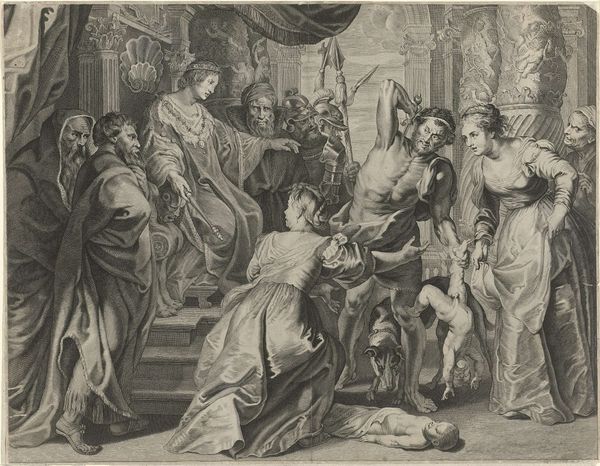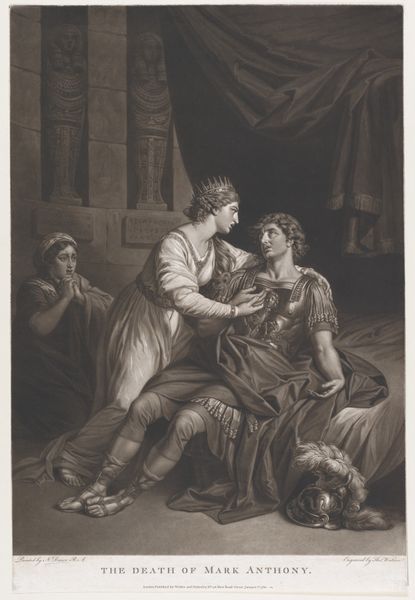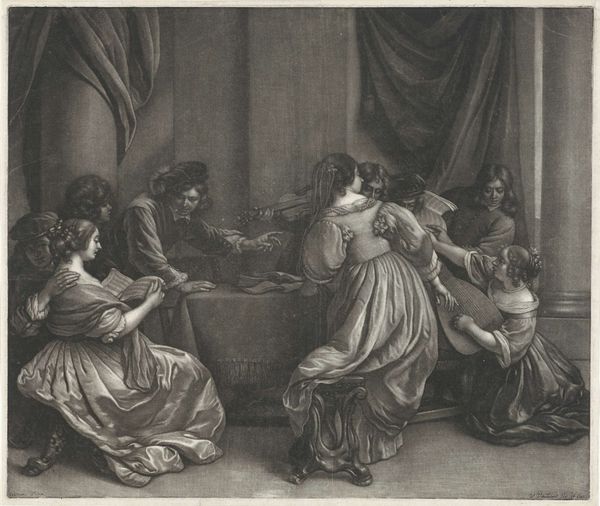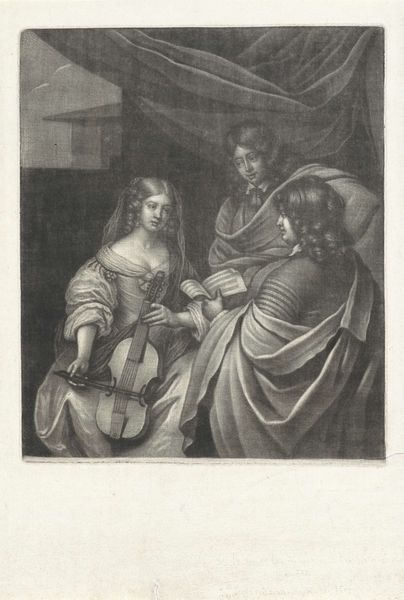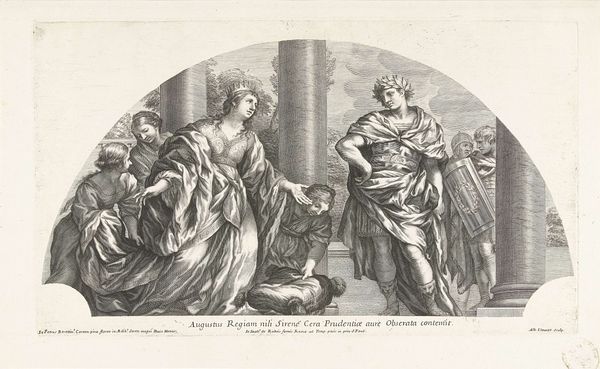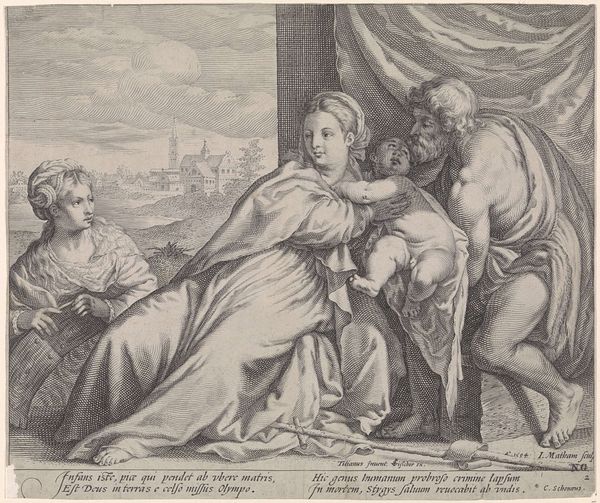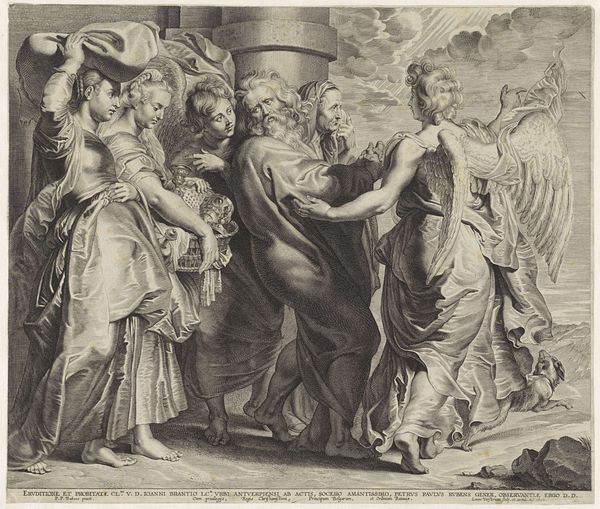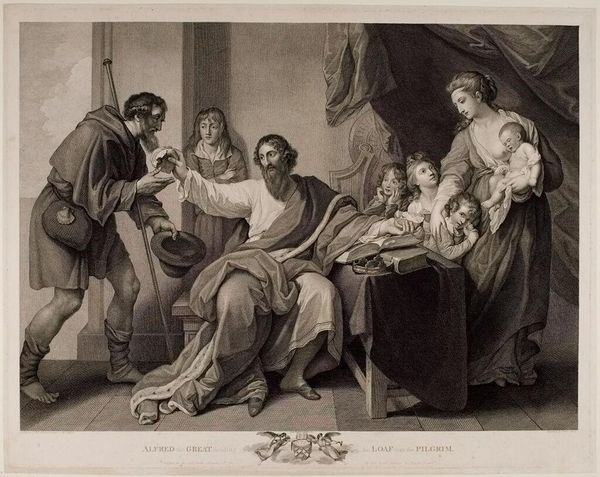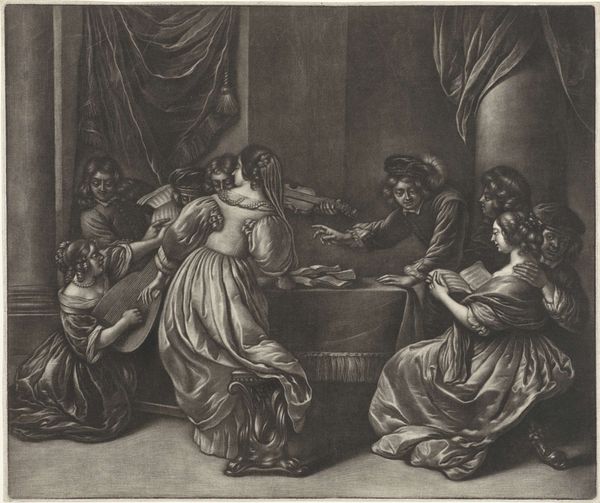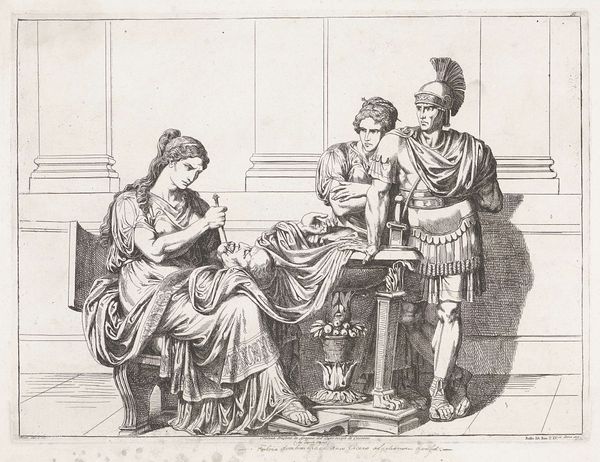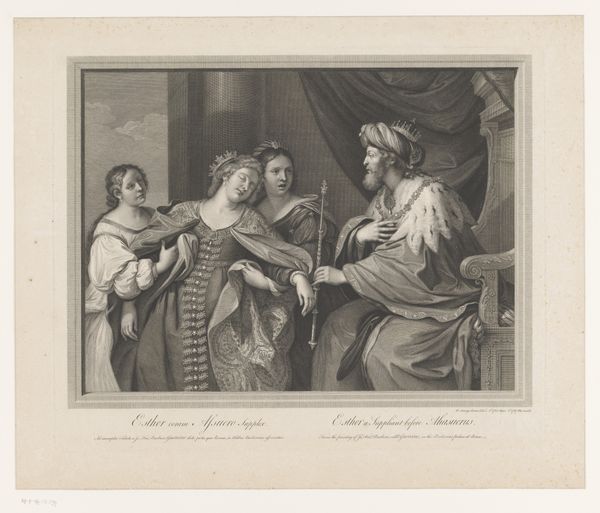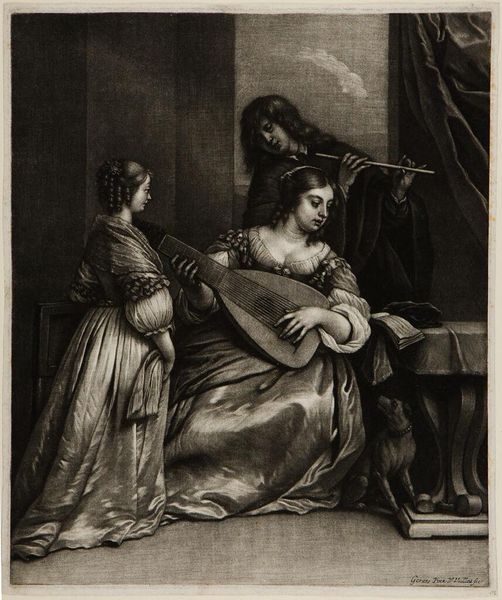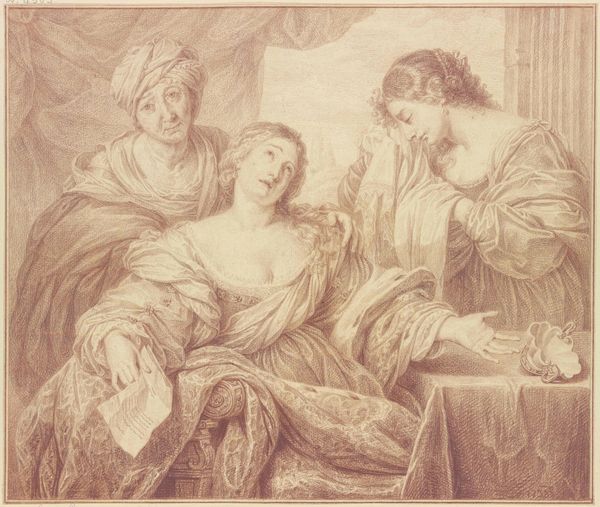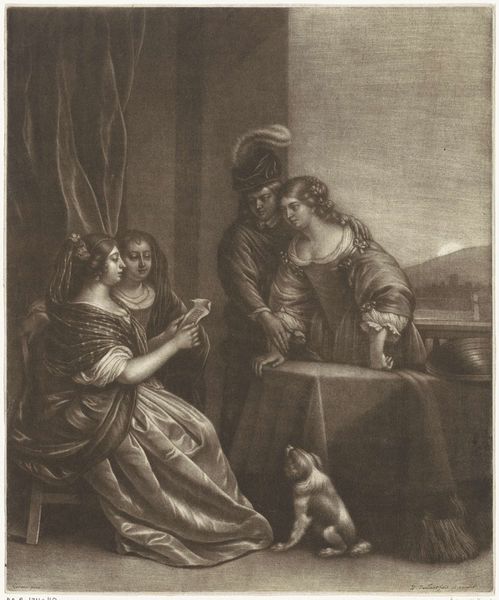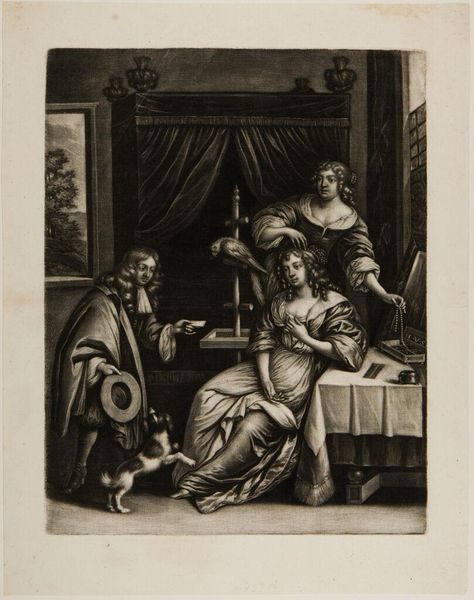
painting, oil-paint
#
portrait
#
baroque
#
painting
#
oil-paint
#
figuration
#
group-portraits
#
history-painting
Copyright: Public Domain: Artvee
Guercino painted Esther before Ahasuerus in the 17th century, a period marked by rigid social hierarchies. The painting portrays a biblical story where Esther, a Jewish woman, risks her life to appeal to King Ahasuerus of Persia on behalf of her people. Guercino captures Esther fainting before the king, attended by her maids. Esther’s identity as a woman, and as a Jew in a foreign court, places her in a precarious position. The king, in his opulent robes, is a figure of absolute power. Esther’s agency is enacted through her courage to confront the king. Her swoon can be read as a performative act to elicit mercy. By depicting Esther’s vulnerability, Guercino invites us to contemplate the intersections of power, gender, and religious identity. How does Esther navigate a world that seeks to define her? Her story remains a powerful testament to resilience.
Comments
No comments
Be the first to comment and join the conversation on the ultimate creative platform.
